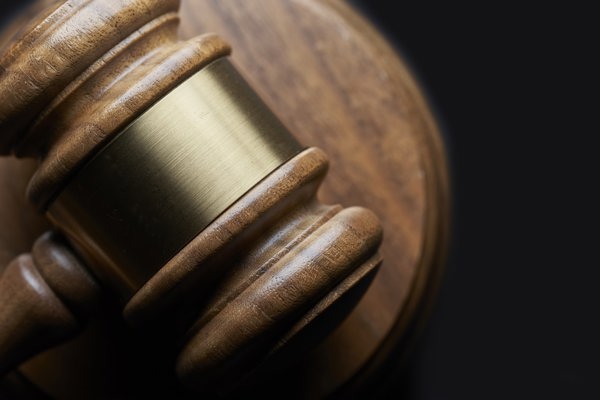
Legal status of unincorporated associations
Under the current law in Scotland, an unincorporated association does not have separate legal personality. This means that the law does not recognise an unincorporated association as a separate entity distinct from its members or its management committee. One of the consequences of this is that an unincorporated association cannot in its own name:
- enter into contracts;
- sue or be sued;
- take on a lease or own property; or
- employ staff.
Personal liability
The lack of separate personality creates a number of potential legal difficulties for committee members who enter into contracts or carry out transactions on behalf of their association.
Property
If committee members own or lease property in their own names and one of the committee members leaves the association, that departing member’s interest in the property will need to be transferred. This can often be overlooked by sports clubs who tend to have a higher turnover of committee members than others.
If your club holds property, we would recommend making enquiries to establish in whose name the property is held in. If the property is held by a person who is no longer a committee member at your club, take steps to transfer their interest as soon as possible.
Personal liability
Committee members who enter into contracts on behalf of their association can become personally liable under those contracts.
Contractual liability will ultimately rest on those who have authorised a contract. For instance, if a committee member was to enter into a contract to purchase sports equipment and the contract was authorised by the management committee, each committee member could be held liable under the terms of the contract should something go wrong.
Personal liability of committee members is not simply restricted to commercial contracts. A member of staff who has been employed by the management committee or by an individual committee member with the authority of the management committee would have a right of recourse against any of the committee members for a breach of their employment contract.
Furthermore, in certain circumstances committee members can be held personally liable to compensate a third party for harm they have suffered as a result of the wrongful actions of the association. Wrongful actions can include a negligent act causing personal injury, an event causing nuisance to a neighbour or simply the making of a defamatory remark.
Ways to exclude or limit liability of committee members
The hard work and dedication of committee members are vital to every unincorporated association and so it may be of some comfort to know that there are some practical steps which can be taken by an association and/or their committee members to exclude or at least limit the extent of personal liability:
- Ensure every committee member is made fully aware of their responsibilities prior to their appointment
A better understanding of the legal status of an unincorporated association should encourage committee members to regularly attend committee meetings and be pro-active in decision-making
- Check whether your association’s constitution entitles a committee member to an indemnity from the funds of the association for any claim made against them as a result of their proper exercise of duties
If there isn’t an indemnity in an association’s constitution, it should consider including one although an indemnity is only of value if the association has funds to pay a claim
- Committee members should check their association’s constitution to establish if they have authority to enter into a contract or arrangement and that you are authorised to do so by the management committee
Authority to enter into a contract or arrangement will not exclude a committee member from personal liability although it should at least ensure that all of the other committee members are also liable
- Where possible, associations should try to insure against the risks faced by its members and committee members
Whilst an association will have to pay insurance premiums, this outlay will be worth every penny it should a claim ever be forthcoming
- Finally, if associations are in any doubt as to what protective measures it should have in place, it should seek legal advice
It is a myth that all legal advice is expensive – at Morton Fraser, we provide sports clubs with fixed fee quotes so they have certainty about costs.
What about incorporation?
If your club is an unincorporated association and it is concerned about the personal liability of its committee members, it should consider the possibility of incorporating as either a company limited by guarantee or as a company limited by shares.
Company limited by guarantee
Companies limited by guarantee are often the entity of choice for sports clubs, charities and other non-profit making organisations.
A guarantee company has separate legal personality and therefore can (in its own name) enter into contracts, sue or be sued, own or lease property and employ members of staff. In addition, a guarantee company has no share capital and does not pay dividends to its members. Instead, each member simply guarantees to pay a small amount of money if the company ever becomes insolvent (can be as little as £1).
If the company becomes insolvent, each member will only be liable to pay up to the amount which they have guaranteed.
The constitution of the company is set out in its articles of association and the members of the company will usually have the power to elect the directors who will have the responsibility of running the company on a day-to-day basis.
Company limited by shares
Whilst there are similarities between companies limited by shares and companies limited by guarantee such as having separate legal personality and limited liability (for companies limited by shares, members’ liability is limited to the amount unpaid on any shares held by them), one of the fundamental differences between the two is that companies limited by shares are generally established with a view to making a profit.
A company limited by shares will have a share capital and its members will be issued with shares and will be entitled to the payment of dividends.
Advantages/Disadvantages to incorporation as a limited company
There are several advantages and disadvantages to incorporation. These are:
- separate legal personality – a limited company can, in its own name, enter into contracts, sue or be sued, own or lease property and employ members of staff;
- limited liability of members – if things go wrong and the company is unable to pay its debts, the liability of members will be restricted to the amount which they have guaranteed (for companies limited by guarantee) or the amount which remains unpaid for their shares (for companies limited by shares)
- more paperwork required to operate a limited company– companies must file annual returns and annual accounts with Companies House and additional filings will be required if significant changes are made to the company such as the appointment or resignation of a director
- company information is stored on a public register at Companies House – the general public can access information about a company’s directors, members and accounts

